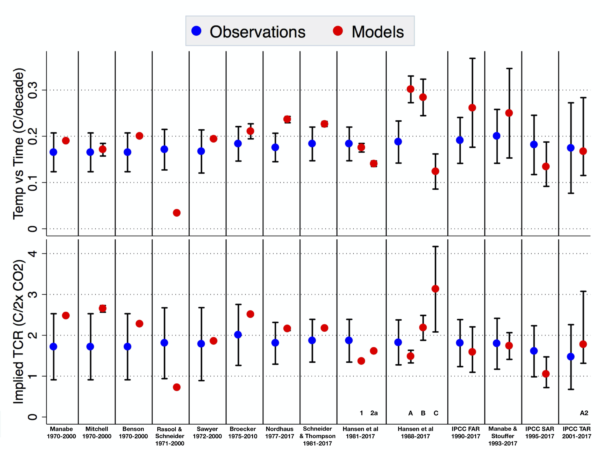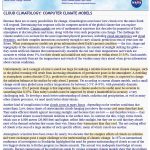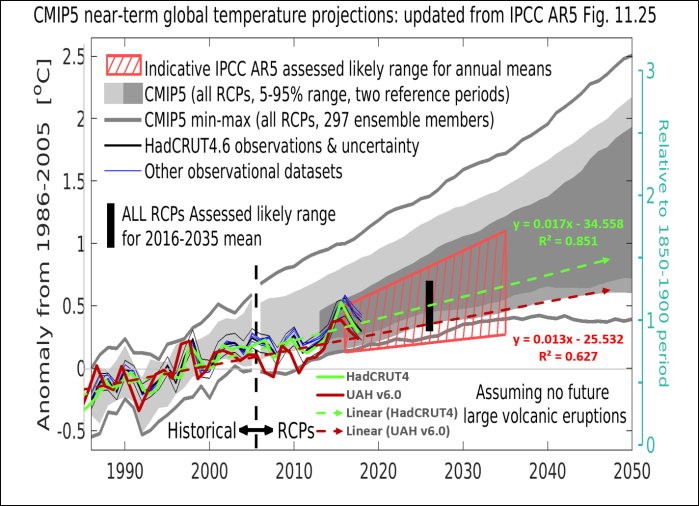- Joined
- Nov 28, 2011
- Messages
- 23,282
- Reaction score
- 18,292
- Gender
- Undisclosed
- Political Leaning
- Other
A recent study checked the performance of 17 different climate models that were developed between 1970 and 2007.
Surprise! 14 of the 17 were spot on, nearly identical to observations. One of the misses was low, by about 0.15C; one was off by 0.1C; two were off by 0.05C. Not too shabby.
Oh, and we should note: These were actual climate models, developed by actual climate scientists. Unlike the usual nonsense hawked by the deniers, these were not journalists, or biologists predicting a Malthusian nightmare resulting from population growth.

The paper:
Error - Cookies Turned Off
Axios summary:
Climate models got it right on projected temperature changes - Axios
Surprise! 14 of the 17 were spot on, nearly identical to observations. One of the misses was low, by about 0.15C; one was off by 0.1C; two were off by 0.05C. Not too shabby.
Oh, and we should note: These were actual climate models, developed by actual climate scientists. Unlike the usual nonsense hawked by the deniers, these were not journalists, or biologists predicting a Malthusian nightmare resulting from population growth.

The paper:
Error - Cookies Turned Off
Axios summary:
Climate models got it right on projected temperature changes - Axios





